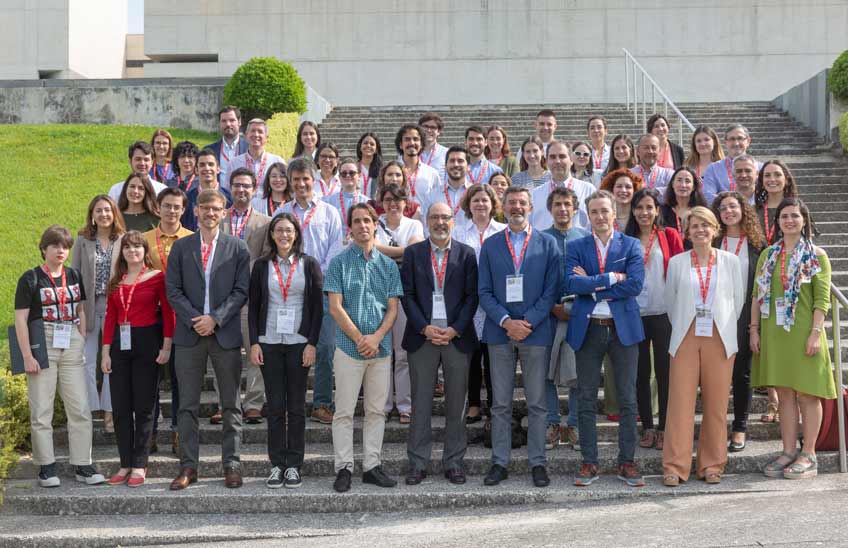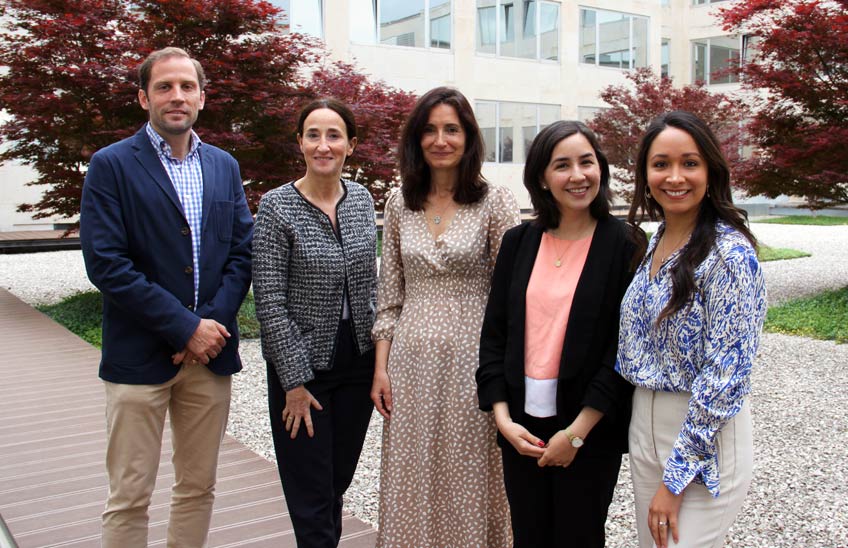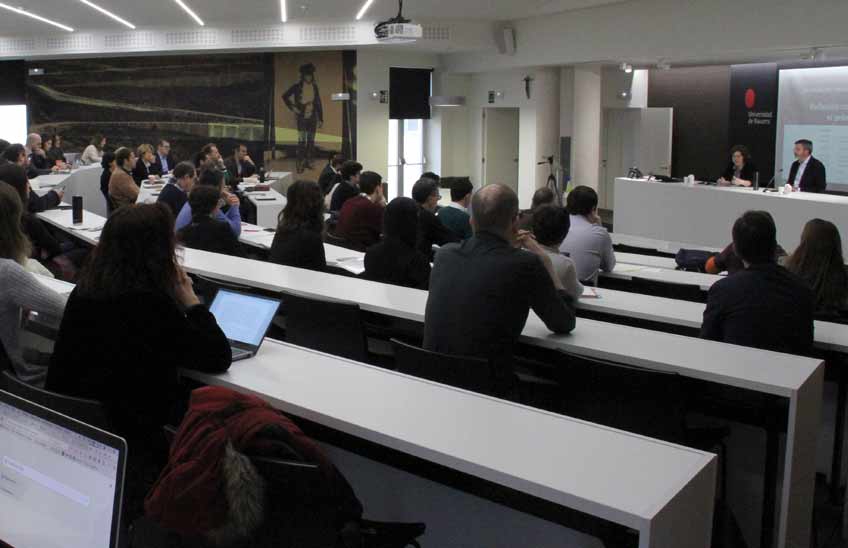The international congress held at ICS provides a map multidisciplinary of relationships and psychological well-being of young people.
Different experts have defended the importance of prevention and early action in mental health: 75% of disorders appear before the age of 25.

14 | 06 | 2024
A complete x-ray of the relationships and psychological well-being of young people today. This is how Gonzalo Arrondo, researcher of the group 'Mind-brain' of the Institute for Culture and Society of the University of Navarra, described the results of the internationalcongress 'Young people, relationships and psychological well-being', which he coordinated. These conference, held on June 6 and 7, put the finishing touch to the first edition of the challenge ICS 22-23, an initiative of research multidisciplinary developed during a year and a half and framed in the Strategy 20-25 Health and Well-being of the University of Navarra.
"A final congress in which answers have been given from different perspectives to the questions that had arisen during the development of challenge has helped to close this period of research", explains Arrondo. In this sense, the balance is "very positive": "From different disciplines, such as Sociology, Psychology, Epidemiology, we have achieved a very complete map of this problem and we have learned a lot".
Over the course of two conference , mental disorders, the relationship with new technologies, behavioral addictions and the integration of young people into society were explored.Luis Campos, meeting , director general of Planning, Coordination, Innovation and assessment of Public Policies of the Government of Navarra and Pablo Pérez López, director scientific of the ICS, opened the. Then, the different axes were addressed through conferences, round tables and project presentations, at position by researchers from different European universities.
This is the case of Jordi Alonso, Full Professor of Preventive Medicine and Public Health of the Universitat Pompeu Fabra, who presented the project on the need to strengthen the mental health of university students (World Mental Health initiative - International College Surveys)". "Before the age of 25, 75% of the mental disorders that will appear throughout life will have appeared. Therefore, it is a time of high vulnerability and it is important to identify and mitigate mental health problems in students," explained the expert. To do so, he proposed using "the existing tools of financial aid, information and Education psychological and psychiatric". Among the most frequent disorders, he highlighted those related to depression, followed by anxiety symptoms, alcohol and substance consumption and panic.
Tobias Dienlin, psychologist and professor at the University of Vienna, invited us to reflect on how to mitigate the impact of digital media on the well-being of young people: "It is important to instill a moderate and balanced use, which does not necessarily mean that we should stop using new technologies, since we would lose many of the benefits they bring with them. And he advocated self-regulation: "It is up to the users to stop using them at a certain point. But we must also help them to develop strategies to achieve this and, perhaps in many cases, reduce their use a little.
The dangers of behavioral addictions (those that do not involve the consumption of substances) was the axis explored by Zsolt Demetrovics, psychologist, anthropologist and professor at the University of Gibraltar. He differentiated between those problems that have or do not have a clinical diagnosis, and pointed out the problems derived from the misuse of the Internet, video games and social networks that "we generally consider more important when we talk about adolescents or young people". In this line, he also pointed out gambling and the changes that have occurred with online games.
For her part, Marge Unt, professor and director of the Institute of Education of programs of study International Social of Tallinn University, shared her research on the consequences of insecurity and labor market difficulties on the health of young people.
"The impact of unemployment goes beyond the fact of not having a work. It severely affects health and well-being, especially if this unemployment extends over a long period of time," he stressed. He called for a balance between policies for the creation of employment and initiatives that take into account emotional well-being: "We must not only promote employability, but also design policies so that people perceive them as an investment in their skills and not as compulsory paternalistic programs".




